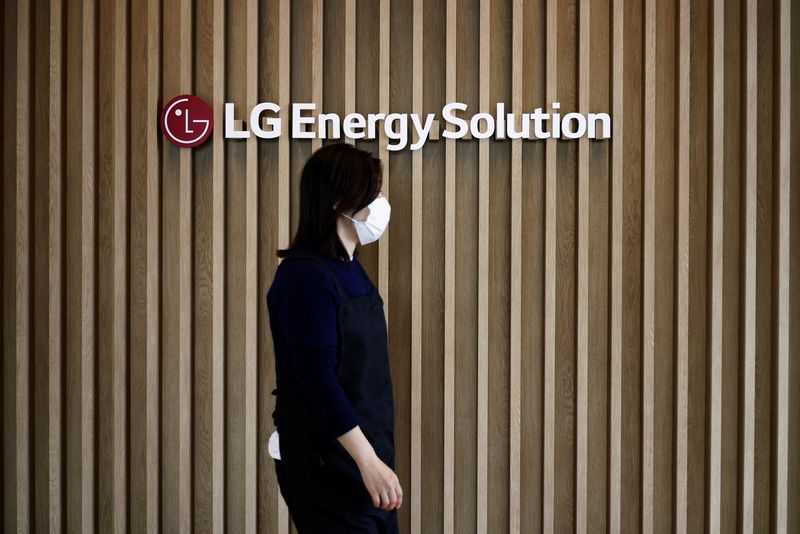By Heekyong Yang
SEOUL (Reuters) -The South Korean government and its top battery companies plan to jointly invest 20 trillion won ($15.1 billion) through 2030 to develop advanced battery technologies, including solid-state batteries, the industry ministry said on Thursday.
"The joint investment will allow South Korea to start commercial production of solid state batteries ahead of others," the ministry said in a statement.
South Korea is home to three of the world's five biggest electric vehicle (EV) battery makers --LG Energy Solution Ltd (LGES), Samsung (KS:005930) SDI Co Ltd and SK On.
The trio collectively control more than a quarter of the global EV battery market and supply major automakers including Tesla (NASDAQ:TSLA) Inc, Volkswagen AG (OTC:VWAGY), General Motors Co (NYSE:GM) and Ford Motor (NYSE:F) Co.
The ministry said the three battery firms will build pilot production plants in South Korea that will serve as their product and manufacturing innovation centres.
The plants will be used to test and manufacture advanced products such as solid state batteries, cylindrical 4680 cell batteries and cobalt-free batteries before launching mass production from their overseas production sites.
EV battery makers are racing to develop new battery technologies that promise longer driving range, higher energy density and better safety than the conventional lithium-ion batteries.
Chinese battery giant CATL unveiled on Wednesday a condensed matter battery that it hopes to start mass production of later this year to power EVs.
The world's top battery maker said last month it was finding it difficult to come up with a technologically feasible and competitive product based on solid state batteries, a technology that is also being researched by Japan's Toyota Motor (NYSE:TM) Corp and Germany's Volkswagen (ETR:VOWG_p).
The industry ministry said South Korea aimed to quadruple domestic production capacity of cathode materials and triple exports of battery production-related equipment with the investment.
The plan comes after the government earlier this month announced a 7 trillion won financial support plan for domestic battery makers seeking to invest in infrastructure in North America to help them cope with the U.S. Inflation Reduction Act.
Earlier this month, the U.S. Treasury Department unveiled stricter EV tax rules, aimed at weaning the United States off dependence on China for EV supply chains.
The U.S. Inflation Reduction Act requires 50% of the value of battery components to be produced or assembled in North America to qualify for a $3,750 credit and 40% of the value of critical minerals sourced from the United States or a free trade partner also for a $3,750 credit.
Under the latest rules, 16 EV models are now eligible for a full or partial tax credit, based on new thresholds that require a certain percentage of the battery parts and minerals to come from a qualifying country.

Nearly 80% of EVs that are eligible for U.S. federal tax credits use batteries from South Korea's three major cell makers, according to an analysis from brokerage Korea Investment & Securities.
($1 = 1,328.3900 won)